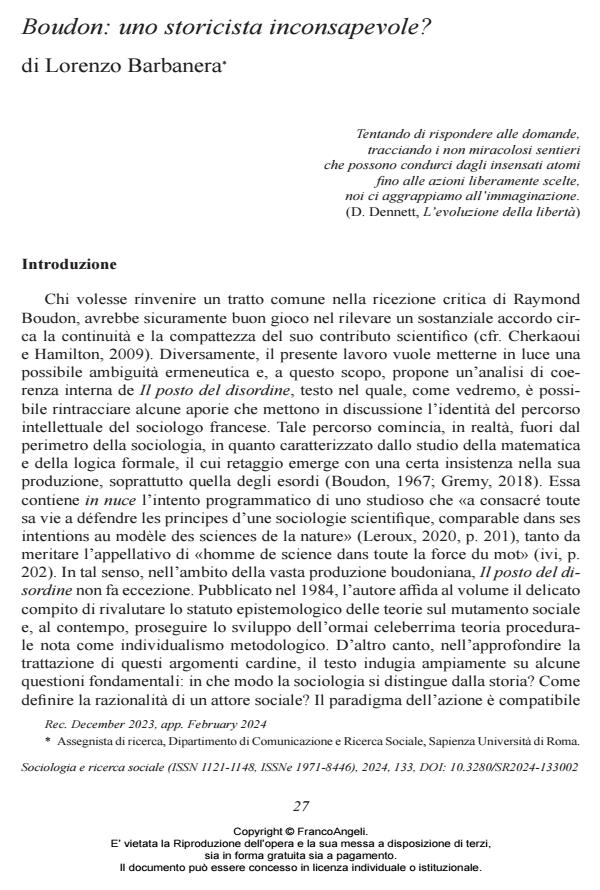Boudon: an unwitting historicist?
Journal title SOCIOLOGIA E RICERCA SOCIALE
Author/s Lorenzo Barbanera
Publishing Year 2024 Issue 2024/133
Language Italian Pages 19 P. 27-45 File size 239 KB
DOI 10.3280/SR2024-133002
DOI is like a bar code for intellectual property: to have more infomation
click here
Below, you can see the article first page
If you want to buy this article in PDF format, you can do it, following the instructions to buy download credits

FrancoAngeli is member of Publishers International Linking Association, Inc (PILA), a not-for-profit association which run the CrossRef service enabling links to and from online scholarly content.
This work constitutes a critical analysis of Boudon’s The Place of Disorder. Specifically, some critical issues in terms of internal coherence are highlighted. The author claims the right for sociology to develop not laws but general state- ments and rejects the idea that sociology and history are destined to overlap. The solution is the use of formal theories accompanied by contingent empirical el- ements. Among these is the case, that is, the encounter of two causal chains of events. Consequently, it represents an ex-post observation, and therefore its use in theory appears controversial, to the extent that it may seem that Boudon risks falling into the «trap of historicism» that he himself would like to avoid.
Lorenzo Barbanera, Boudon: uno storicista inconsapevole? in "SOCIOLOGIA E RICERCA SOCIALE " 133/2024, pp 27-45, DOI: 10.3280/SR2024-133002